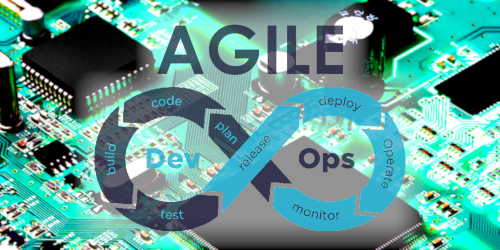- Instruction of your staff at your site, using courseware, application example, and a functional template.
- Mentoring your key staff on an ongoing or periodic basis, on these tools or on Quantitative Program Management.
- Contracting or Employment in your organization on specific topics.
Check out my YouTube Channel: Power Operational Intelligence
Now Live! Overview, Structure, Task Data, Table Design, SQL Server, and Re-Linking now showing.
Video courses covering material on this website, and more, are presented in the playlists.
Code snippet links at YouTube Code Snippets. Twitter at @poweroperation1, #poweropi, #poweroperationalintelligence.
Subscribe on YouTube, and click the "Notification" Bell icon to be notified as content is published.
Collected PowerOpI Posts on Silicon Valley Project Management

Advice for Program Managers: 1-Program Management OpportunityRichard Bixler Summary: Introduces a vision and framework for development of Program Managers and PMO, for Program Management specialization to its environment, and for improved effectiveness and integration of PM with organization operational management. This Series, “Advice for Program Managers”: Modern Program Management requires skills and methods specialized to characteristics of its industry; to technologies of its produced products and services; and to management of its organization. In execution, Program Management envisions, creates, organizes, and rationalizes information and leadership across all these domains. The leadership and information created make Program Management an integral part of operational management of a majority of work flowing through an organization. The Series also solicits contributions to this Blog site, to extend coverage of PM Best Practices and Core Program Structure to a broadening set of industries and technologies. This post: introduces a framework for excellence in Program Management in modern environments, describing value-add by Program Management that can magnify effectiveness and agility of many organizations. The framework includes opportunity for collection and propagation of PM Best Practices and Core Program Structure specialized to industries and technologies. It describes a PM career path including behaviors and skills to better integrate Program Management within an organization, and with management of the organization. Finally, methodology is described to capture, adopt, and propagate PM Best Practices and Core Program Structure to improve professional Program Management. Published originally on svprojectmanagement. The Program Management OpportunityHere's a link to the download page with descriptions. These items are free, and licensed under GPL3. Assertion: Different program types each require specialization of Program Management methods and skills. Further Assertion: Knowledge of Operations of your organization gained by Program Managers can significantly benefit management of the overall organization. How well does senior management in your company use Program Management cross-organizational, cross-product, cross-technology, operational information, in overall management of the organization? Can Program Management contribute more to Senior Management to improve management of the organization? Even More Assertions: No clear source teaches excellence in PM for modern project specializations. Nobody teaches PM how to connect Program Management with Senior Management. Let’s fill the gap! Develop methodology to create, communicate, maintain, and expand best-practices for practical, actionable program management of modern program specializations; and to connect operational knowledge gained from Program Management to organizational management. for PM individuals and PMO organizations, to better effectiveness of the host organizations in which we work, to connect with organizational Management and especially with Senior Management, and to better the profession of Program Management and its utilization in host organizations. Advice for Program Managers: The Blog SeriesThis Series, “Advice for Program Managers”: Modern Program Management requires skills and methods specialized to characteristics of its industry; to technologies of its produced products and services; and to management of its organization. In execution, Program Management envisions, creates, organizes, and rationalizes information and leadership across all these domains. The information and leadership created make Program Management an integral part of management of a majority of work flowing through an organization. 1-Program Management Opportunity 2-Program Management Career Path 3-Program Management Career Skills 4-Program Management Specialization: System Programs Phased Methodology The Series also solicits contributions to this Blog site, to extend coverage of PM Best Practices and Core Program Structure to a broadening set of Specializations. 5-PMO Role 6-Quantified Agile for Hardware Executive Expectations of Program ManagementDevelop and Ship product!
Steve Jobs: The Dynamics of An Excellent Team "One of the things that really hurt Apple was after I left, John Sculley got a very serious disease, and that disease I've seen other people get it, too. It's the disease of thinking that a really great idea is 90% of the work and that if you just tell all these other people, "Here is this great idea", then, of course, they can go off and make it happen. "And the problem with that is that there is just a tremendous amount of craftsmanship in between a great idea and a great product. And as you evolve that great idea, it changes and grows. It never comes out like it starts because you learn a lot more as you get into the subtleties of it, and you also find there are tremendous trade-offs that you have to make. There are just certain things you can't make electrons do. There are certain things you can't make plastic do, or glass do, or factories do, or robots do. And as you get into all these things, designing a product is keeping 5,000 things in your brain, these concepts, fitting them all together, and continuing to push to fit them together in new and different ways to get what you want. And every day, you discover something new - a new problem or a new opportunity to fit these things together a little differently. And it's that process that is the magic." ... Piet Hein: : "Problems worthy of attack prove themselves by hitting back." Value-Add by Program ManagementProgram Management can offer Senior Management more than they commonly expect. Of course, Program Management plans Programs, typically product development or ongoing process operation, or provision of infrastructure; and then drives, monitors, corrects, and reports the state of those Programs. These programs plan and drive operation of a major share of business processes across participating organizations. It wouldn’t be much exaggeration to claim that Program Management in many organizations drives almost 100% of work that flows through the organization. In an organization developing server-class hardware, material may be 50% of spending, directly planned and controlled by Program Management. The other major organizational expense in most organizations is for personnel doing the work that is virtually all planned and managed by Program Management. In this activity, PMs create or aggregate myriad information useful to organizational management. This information is usually cross-organizational, cross-product, and cross-technology: and it’s even rationalized across domains. Furthermore, the PMO is a collection of such people and of their information. Program Managers individually, and PMOs, can take advantage of this information gained, to maximize connection with senior management to operation of the organization. Different program types drive varying kinds of information, often analogues to these, all necessarily germane to operation of the specific business of the overall organization. Here are examples of management information commonly gained from Programs:
If you don’t know your numbers, you don’t know your business – Marcus Lemonis (CNBC “The Profit“) Some of this information is available piecewise from functional groups within the organization. But Program Managers most likely have it on-hand, in context and rationalized across organizations. Program Managers usually have a better overview, rationalized, and supported by on-hand data, of operation than is available piecewise from line organizations. That may better-inform management with greater opportunity than is commonly realized. Can Program Management and individual Program Managers use their knowledge of program management methodologies, plus knowledge of needs of the whole organization, to adapt methodologies and execute them to satisfy requirements across the organization? Can Program Management and individual Program Managers participate more directly in the business of the Organization? This leads to a broader vision of management: Transform cross-organizational Program Management for use directly in management of the organization. Use Program Management operational knowledge and artifacts in organizational management. For this to be realized, Program Managers and PMO must demonstrate the same degree of professional behaviors, leadership, skills, expertise, and execution as is achieved by line managers in the organization. The rest of this Series emphasizes these characteristics. Specific behaviors described in this Series may not apply to your organization or program types or operating style. Nevertheless, consider how operational knowledge gained by your Program Management can further benefit management of your overall organization. Consider whether the behaviors described here can be adapted to achieve more effective Program Management within your organization to enhance operational performance and Program Management careers. NEXT POST — Advice for Program Managers: 2-Program Management Career Path More Articles by this AuthorThree Levels of Program Management Guiding Principles for Program Management Action, Program Quantification, and Leverage Through Tooling. Organizing Program Communication Program Management depends on effective communication. Design Program communication paths for everyone throughout the Program. Database Platforms for Program Management Logistics Logistics Tool extended, using SQL Server and MS Access with MS Excel and PowerQuery. Logistics Tool using MS Excel Power Query. Tool methodology for agility with continuous plan update: Program BOM, Tie to Dates, Builds, Element data. Structure Program with Parallel Phasing. Describes coordination of EE/ME, FW, Test, Supply/CM, Driver/Kernel, Transport, Management. Scheduling, Integration points, scaffolding, and starting work. Hybrid Program Cross-Domain Coordination of development frameworks, including Phased and Agile/Scrum where appropriate, via integration points and scaffolding. Software Integration Sequence and Dependency Planning. Problem Statement. PM responsibility for Program Management drive throughout an organization, also includes schedule, budget, integration, critical path, logistics. Planning work structure for a Program, and using the plan effectively. AI effects on current and future lifestyles. Personal strategies for proactive and defensive use of AI. Using Iterative Thinking to solve big problems and complex logistics. PM/PMO role identifying, evaluating, and propagating AI Best-Practices through an organization. Link To Free Tools To Manage Schedule, Logistics, And FinanceAuthor's www.softtoyssoftware.com website with articles on Program Management and Program quantification tooling using Excel, MS Project, and MS Visio with SQL databases PowerQuery, SQL Server, and MS Access. Articles describe how you can use tools available from the website, or develop these capabilities yourself using commonly available tools. Tools available from this website are free. They can handle small to large programs, limited only by your imagination. Using the included Program Template to envision, organize, plan, and run a large program puts me in mind of unleashing a Roman Legion to a sure outcome. Veni, Vidi, Vici! – Julius Caesar.
Credits Image(s) used under license from Shutterstock.com. Attribution: metamorworks / Shutterstock.com My website: www.softtoyssoftware.com Copyright © 2021 Richard M. Bixler All rights reserved |


















